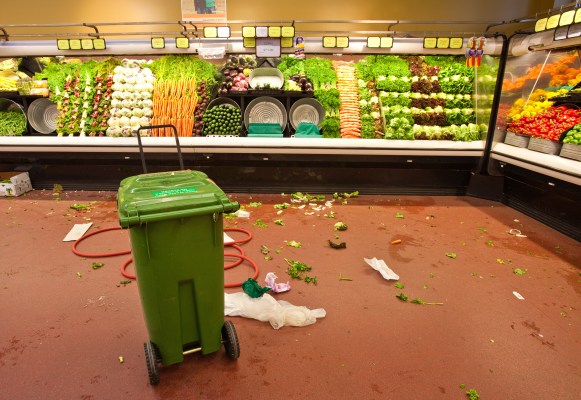Divert bags $100M growth equity, $1B financing to tackle grocery store food waste

Every year, about 35% of the food supply in the U.S. is wasted. About half of that’s because of picky eaters or outsize restaurant portions, but the rest happens further upstream, according to the U.S. Environmental Protection Agency, with about 6% to 13% occurring at grocery stores.
For grocery stores, which operate on very thin margins, that loss is significant. The environmental toll is big, too: Grocery store and other retail food losses in the U.S. alone represent 10 million to 20 million metric tons of carbon pollution annually. That’s about as much as some entire countries, like Kenya or Guatemala.
A large part of food waste’s carbon problem happens at the landfill. There, microbes break the food down anaerobically, meaning without oxygen. That process releases methane, a greenhouse gas that’s 84 times more potent than carbon dioxide over 20 years. Landfills can capture the methane and burn it, using it to produce power, for example.
Burning the methane transforms it into carbon dioxide and some other pollutants. While the pollution burden isn’t ideal, from a climate perspective, it’s probably better than the alternative. Only about a fifth of all U.S. landfills capture the gas; the rest just let it seep into the atmosphere.
Part of the problem with landfill gas is that it can be hard to capture. If you’ve ever seen a landfill, you probably understand why. They’re not exactly precision machines.
Intercepting food waste before it hits the landfill changes the equation, though. That’s where Divert hopes to step in.
The company, which was founded in 2007, works with grocery store chains like Ahold Delhaize, Albertsons, Kroger, Safeway and Target to tackle the problem. It starts by analyzing a store’s waste stream and suggesting ways to minimize waste in the first place.


